|
Books Should Be Free Loyal Books Free Public Domain Audiobooks & eBook Downloads |
|
|
Books Should Be Free Loyal Books Free Public Domain Audiobooks & eBook Downloads |
|
Religion |
|---|
|
Book type:
Sort by:
View by:
|
By: Jeremiah Burroughs (1599-1646) | |
|---|---|
 Treatise of Earthly-mindedness
Treatise of Earthly-mindedness
Of Earthly-mindedness, Wherein is shewed, 1. What Earthly-mindedness is. 2. The Evils of Earthly-mindedness. 3. Several Convincements of Earthly-mindedness. 4. Several Reasons of Earthly-mindedness. 5. Considerations to take off the heart from Earthly-mindedness. 6. Directions how to get our hearts free from Earthly-mindedness. | |
By: Jeremy Taylor (1613-1667) | |
|---|---|
 Rule and Exercises of Holy Dying
Rule and Exercises of Holy Dying
Written by a Church of England clergyman in the time of Cromwell, this work is praised for both its style and content. Taylor's work was much admired by John Wesley, the founder of Methodism, for its devotional quality; and by Samuel Taylor Coleridge, Thomas de Quincey, and Edmund Gosse for its literary qualities.Holy Dying is meant to instruct the reader in the "means and instruments" of preparing for a blessed death, written in a time when death was a constant companion to life and not to be encountered without being ready for it. It assumes illness and a death-bed, with recommended meditations and prayers for the sick, the family, and the clergyman attending to the dying one. | |
By: Jerry McAuley (1839-1884) | |
|---|---|
 Transformed; or, the History of a River Thief, Briefly Told
Transformed; or, the History of a River Thief, Briefly Told
Jerry McAuley gives a testimony of his transformation from one of the wickedest men to ever live to being saved and a life of helping others do the same. | |
By: Jesse Lyman Hurlbut (1843-1930) | |
|---|---|
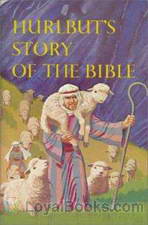 Hurlbut's Story of the Bible
Hurlbut's Story of the Bible
As a parent, many of us would like our children to be familiar with our sacred books, no matter to which religion or faith we belong. However, very young children may find the language and the ideas quite difficult to assimilate. Yet the stories are so memorable and valuable that we want our children to know them as early as possible. Published in 1905, Hurlbut's Story of The Bible – 1 is a wonderful compilation of some of the most important and delightful stories to be found in both the Old and New Testaments... | |
 Hurlbut's Life of Christ For Young and Old
Hurlbut's Life of Christ For Young and Old
Hurlbut's Life of Christ For Young and Old is a detailed, chronological presentation of the life of Christ, relying heavily on quoted portions of Scripture/ Rev. Hurlbut makes the gospel story accessible for the reader as each episode and teaching is presented as natural dialog. The Life of Christ is a worthy companion to his larger multi-volume Story of the Bible. These are true classics of Christian literature. - Summary by Larry Wilson | |
By: Jessie E. Sampter (1883-1938) | |
|---|---|
 Blessings for Chanukah
Blessings for Chanukah
volunteers bring you 12 recordings of Blessings for Chanukah by Jessie E. Sampter. This was the Weekly Poetry project for December 9, 2018. ------ Jessie Sampter was a Jewish educator, poet, and Zionist pioneer. She was born in New York City and immigrated to Palestine in 1919. In her twenties, she joined the Unitarian Church and began writing poetry. Her poems and short stories emphasized her primary concerns: pacifism, Zionism, and social justice. - Summary by Wikipedia | |
By: Jewish Publication Society of America | |
|---|---|
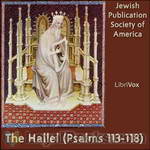 The Hallel (Psalms 113-118)
The Hallel (Psalms 113-118)
Hallel (Hebrew: הלל “Praise [God]“) is part of Judaism’s prayers, a verbatim recitation from Psalms 113-118, which is used for praise and thanksgiving that is recited by observant Jews on Jewish holidays. Summary from WikipediaRead by Délibáb, D.E. Wittkower, Jc Guan, Katie Gibboney, Leon Mire, and Scott Sherris | |
 Genesis (JPSA)
Genesis (JPSA)
The first book of the Pentateuch - Genesis. Presented according to weekly parshah.Praised are You, Adonai, Our G-d, ruler of the Universe, who has made us holy with commandments and commanded us to engage in the study of Torah. | |
 Exodus (JPSA)
Exodus (JPSA)
The second book of the Pentateuch - Exodus. Presented according to weekly parshah.Praised are You, Adonai, Our G-d, ruler of the Universe, who has made us holy with commandments and commanded us to engage in the study of Torah. (Introduction by Linette Geisel & traditional prayer. Parshat descriptions provided by Wikipedia) | |
 Torah (JPSA) 03: Leviticus
Torah (JPSA) 03: Leviticus
The third book of the Pentateuch - Leviticus. Presented according to weekly parshah. Praised are You, Adonai, Our G-d, ruler of the Universe, who has made us holy with commandments and commanded us to engage in the study of Torah. . - Summary by Linette Geisel. Parshat descriptions provided by Wikipedia | |
 Torah (JPSA) 04: Numbers
Torah (JPSA) 04: Numbers
According to Jewish tradition the 5 books of Moses are read and studied each year. In order to complete the study, the 5 books are separated into sections . The fourth book of the Pentateuch - Numbers. Presented according to weekly parshah. Praised are You, Adonai, Our G_d, ruler of the Universe, who has made us holy with commandments and commanded us to engage in the study of Torah. | |
 Torah (JPSA) 05: Deuteronomy
Torah (JPSA) 05: Deuteronomy
According to Jewish tradition the 5 books of Moses are read and studied each year. In order to complete the study, the 5 books are separated into sections . The last book of the Pentateuch - Deuteronomy is presented according to weekly parshah. Praised are You, Adonai, Our G_d, ruler of the Universe, who has made us holy with commandments and commanded us to engage in the study of Torah. Parshat descriptions provided by Wikipedia. | |
 Nevi'im (JPSA) 06: Joshua
Nevi'im (JPSA) 06: Joshua
The Book of Joshua is the first of the former prophets and the beginning of Nevi’im. The book of Joshua retells the conquest of Canaan and the division of the land among the Twelve Tribes. The conclusion includes Joshua’s address to the people and the witnessing of his death and burial. - Summary by Wikipedia and Linette Geisel | |
 Nevi’im (JPSA) 07: Judges
Nevi’im (JPSA) 07: Judges
The Book of Judges is the second of the former prophets within Nevi’im. The book of Judges covers the time between the conquest described in the Book of Joshua and the establishment of a kingdom in the Books of Samuel, during which Biblical judges served as temporary leaders. Judges, tell of the struggle of the people to possess the land. When the people are unfaithful, G_d delivers them into the hands of their enemies; once the people repent, mercy is given, a Judge delivers them from oppression until the cycle repeats... | |
By: Johann Adam Möhler (1796-1838) | |
|---|---|
 Symbolism
Symbolism
Johann Adam Möhler was professor theology at the Tübingen University where both Catholics and Protestants taught and studied. In 1832 he published Symbolism; a work that examined the doctrines of original sin, grace and free will as held by the different Christian confessions. It caused a storm of controversy in the Protestant nations of Europe. In it he turned the weapons furnished by Hegel, the “Protestant Aquinas”, against Protestantism. His method and style were supported by the use of facts, texts, and documents... | |
By: Johann Gerhard (1582-1637) | |
|---|---|
 Sacred Meditations
Sacred Meditations
Meditationes Sacrae, was first published in Latin in 1606 when Gerhard was only twenty-two years old. It consists of 51 brief meditations on various aspects of the Christian life. Nearly four hundred years after its first appearance, it remains the only work published by such a young author that has stood the test of time. Frequently reprinted in Latin, it has also been translated into most European languages as well as Greek and Arabic. While not a large book, it is impactive beyond its size. - Jonathan Lange | |
By: John Bosco (1815-1888) | |
|---|---|
 Life of St. Dominic Savio
Life of St. Dominic Savio
This it the most authentic biography of St. Dominic Savio, seeing as it is written by St. John Bosco, Savio's teacher. | |
By: John Brown (1830-1922) | |
|---|---|
 History of the English Bible
History of the English Bible
The celebration of the Tercentenary of the Authorized Version of the English Bible of 1611 has called into existence the little book here presented to the reader's notice. It is the brief repetition of a story beginning in 670 A.D. and reaching on for twelve hundred years to 1879. It takes us back to the Monastery of Whitby where Caedmon the monk paraphrased Scripture story in Saxon song, and brings us through the centuries to the Abbey of Westminster where a distinguished body of English scholars met in 1870 and commenced that Revision of the Scriptures which first saw the light in 1881. | |
By: John Brownlie (1857-1925) | |
|---|---|
 Hymns of the Early Church
Hymns of the Early Church
This collection of hymns have been translated from the poetry to the Latin church, arranged in the order of the Christian year. "This volume is intended for hours of devotion, and the vast storehouse of sacred poetry of the Latin Church has been put under tribute to supply the material," writes the author, Reverend John Brownlie, in the preface. The collection includes hymns for Christmas, Easter, All Saints' Day, Advent, and more. | |
By: John Bunyan (1628-1688) | |
|---|---|
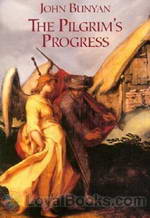 The Pilgrim's Progress
The Pilgrim's Progress
A journey that takes the hero, Christian, through the varied landscapes that constitute life and through the events that happen to human beings is the plot of The Pilgrim's Progress by John Bunyan. Readers who have read and loved Louisa May Alcott's Little Women would recall the many references to this 17th century work of religious fiction. The Pilgrim's Progress is based on several values based in the teachings of Christianity. The importance of using the Bible as a guiding principle in life, of traveling not just geographically but also spiritually, the emphasis on community living and of the companionship of fellow people and many other themes... | |
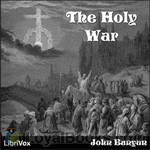 The Holy War
The Holy War
The Holy War is perhaps John Bunyan’s second most popular work, after The Pilgrim’s Progress. It tells the story of afierce battle to take control of a city from its rightful ruler. | |
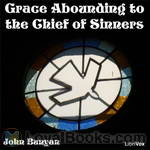 Grace Abounding to the Chief of Sinners
Grace Abounding to the Chief of Sinners
Grace Abounding is the spiritual autobiography of John Bunyan, who also penned Pilgrim’s Progress, perhaps one of the most significant pieces of Christian literature, second only to the Bible. Grace Abounding follows Bunyan’s struggle to find true repentance and forgiveness, his battle with Satan’s temptations of unbelief, his comfort found in the Bible and his overarching victory gotten by the grace of God through Jesus Christ his Son. Readers familiar with Pilgrim’s Progress will recognize... | |
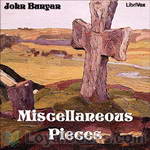 Miscellaneous Pieces
Miscellaneous Pieces
John Bunyan (November 28, 1628 – August 31, 1688), a Christian writer and preacher, was born at Harrowden (one mile south-east of Bedford), in the Parish of Elstow, England. He wrote The Pilgrim’s Progress, arguably the most famous published Christian allegory. In the Church of England he is remembered with a Lesser Festival on 30 August. Bunyan became a popular preacher as well as a prolific author, though most of his works consist of expanded sermons. In theology he was a Puritan, but there was nothing gloomy about him. The portrait his friend Robert White drew, which has often been reproduced, shows the attractiveness of his true character. | |
By: John Calvin (1509-1564) | |
|---|---|
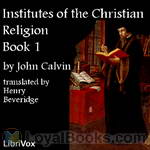 Institutes of the Christian Religion
Institutes of the Christian Religion
Institutes of the Christian Religion is John Calvin’s seminal work on Protestant systematic theology. Highly influential in the Western world and still widely read by theological students today, it was published in Latin in 1536 and in his native French in 1541, with the definitive editions appearing in 1559 (Latin) and in 1560 (French). The book was written as an introductory textbook on the Protestant faith for those with some learning already and covered a broad range of theological topics... | |
 Commentary on the Epistles of Paul the Apostle to the Corinthians, Volume 1
Commentary on the Epistles of Paul the Apostle to the Corinthians, Volume 1
John Calvin was an influential French theologian and pastor during the Protestant Reformation. Calvin's writing and preachings provided the seeds for the branch of theology that bears his name. Originally trained as a humanist lawyer, he broke from the Roman Catholic Church around 1530. After religious tensions provoked a violent uprising against Protestants in France, Calvin fled to Switzerland. Calvin developed his theology in his biblical commentaries as well as in his sermons and treatises. Calvin produced commentaries on most of the books of the Bible... | |
 Commentary on the Epistle of Paul the Apostle to the Ephesians
Commentary on the Epistle of Paul the Apostle to the Ephesians
In 1548, Calvin published his "Commentaries on six of St Paul's Epistles, viz., Corinthians, Ephesians, Philippians, Colossians and Timothy. In his "Commentaries," the peculiar doctrines which mark his system of theology occur, of course, in a scattered manner, as the occasion of his text may call them forth. | |
 Sermons upon the Epistle of Saint Paul to the Ephesians
Sermons upon the Epistle of Saint Paul to the Ephesians
While many of Calvin's sermons are now lost after they were sold by weight by the library of Geneva, his sermons on Ephesians have been preserved, having been translated into Early Modern English by Arthur Golding . Arthur Golding's claim to fame is that his translation of Ovid's Metamorphoses influenced Shakespeare. A comparison with Calvin's commentary on the same letter shows that Calvin saw preaching as no mere explanation of the text - the sermons work consecutively through the text but circle round on the point many time with brief illustration and continuous application to the hearers... | |
 Selection of the Most Celebrated Sermons of John Calvin
Selection of the Most Celebrated Sermons of John Calvin
In offering this selection of Sermons to the publick, the publisher has not been governed by Sectarian principles, but has selected Sermons upon various subjects, that the reader may understand the general doctrine held forth by those eminent divines. When we consider the mental darkness which enveloped the world in the days of Luther and Calvin, under Popish superstition and idolatry, and that theirs were some of the first attempts to emancipate the human intellect from more than "Egyptian darkness,"... | |
 Two Godly and Learned Sermons
Two Godly and Learned Sermons
Two godly and learned sermons, made by that famous and worthy instrument in God's church, John Calvin. Which sermons were long since translated out of Latin into English, by Robert Horne late Bishop of Winchester, at what time he suffered exile from his country, for the testimony of a good conscience, as his Apology in the beginning of the book will witness. And because these sermons have long lain hidden in silence, and many godly and religious persons, have been very desirous of them: at their earnest request they are now published. | |
 Scripture Texts with Expositions and Sentence-prayers from Calvin's Commentaries on the Minor Prophets
Scripture Texts with Expositions and Sentence-prayers from Calvin's Commentaries on the Minor Prophets
The prayers of John Calvin, however, have received little attention, as compared with the fame which crowns his theological writings. His commentaries upon Jeremiah, Ezekiel, Daniel, and the minor prophets were originally delivered in the form of lectures, each followed by appropriate petitions. Both lectures and prayers were extemporaneous. In his epistle dedicatory, prefaced to the commentary upon the minor prophets, and addressed to the King of Sweden, Calvin says: "Had it been in my power I would rather have tried to prevent the wider circulation of that extemporaneous kind of teaching, intended for the particular benefit of my auditory, and with which benefit I was abundantly satisfied. | |
 Commentary on the Epistle to the Romans
Commentary on the Epistle to the Romans
Of all commentators I believe John Calvin to be the most candid...He was no trimmer and pruner of texts. He gave their meaning as far as he knew it. His honest intention was to translate the Hebrew and the Greek originals as accurately as he possibly could, and then to give the meaning which would naturally be conveyed by such Greek and Hebrew words: he laboured, in fact, to declare, not his own mind upon the Spirit's words, but the mind of the Spirit as couched in those words. Dr. King very truly says of him, "No writer ever dealt more fairly and honestly by the Word of God... | |
 Institutes Of The Christian Religion Book 1 (Allen Translation)
Institutes Of The Christian Religion Book 1 (Allen Translation)
Now, my design in this work has been to prepare and qualify students of theology for the reading of the divine word, that they may have an easy introduction to it, and be enabled to proceed in it without any obstruction. For I think I have given such a comprehensive summary, and orderly arrangement of all the branches of religion, that, with proper attention, no person will find any difficulty in determining what ought to be the principal objects of his research in the Scripture, and to what end he ought to refer any thing it contains... | |